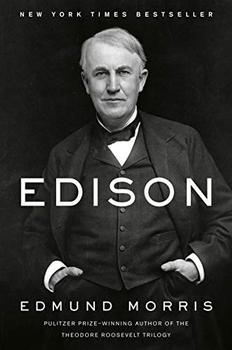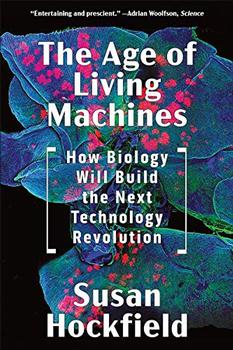Summary | Excerpt | Reviews | Beyond the book | Read-Alikes | Genres & Themes | Author Bio

From Pulitzer Prize-winning author Edmund Morris comes a revelatory new biography of Thomas Alva Edison, the most prolific genius in American history.
Although Thomas Alva Edison was the most famous American of his time, and remains an international name today, he is mostly remembered only for the gift of universal electric light. His invention of the first practical incandescent lamp 140 years ago so dazzled the world—already reeling from his invention of the phonograph and dozens of other revolutionary devices—that it cast a shadow over his later achievements. In all, this near-deaf genius ("I haven't heard a bird sing since I was twelve years old") patented 1,093 inventions, not including others, such as the X-ray fluoroscope, that he left unlicensed for the benefit of medicine.
One of the achievements of this staggering new biography, the first major life of Edison in more than twenty years, is that it portrays the unknown Edison—the philosopher, the futurist, the chemist, the botanist, the wartime defense adviser, the founder of nearly 250 companies—as fully as it deconstructs the Edison of mythological memory. Edmund Morris, winner of the Pulitzer Prize and the National Book Award, brings to the task all the interpretive acuity and literary elegance that distinguished his previous biographies of Theodore Roosevelt, Ronald Reagan, and Ludwig van Beethoven. A trained musician, Morris is especially well equipped to recount Edison's fifty-year obsession with recording technology and his pioneering advances in the synchronization of movies and sound. Morris sweeps aside conspiratorial theories positing an enmity between Edison and Nikola Tesla and presents proof of their mutually admiring, if wary, relationship.
Enlightened by seven years of research among the five million pages of original documents preserved in Edison's huge laboratory at West Orange, New Jersey, and privileged access to family papers still held in trust, Morris is also able to bring his subject to life on the page—the adored yet autocratic and often neglectful husband of two wives and father of six children. If the great man who emerges from it is less a sentimental hero than an overwhelming force of nature, driven onward by compulsive creativity, then Edison is at last getting his biographical due.
The story of Edison and his inventions is ably told by Mr. Morris in authoritative, commanding prose, but it also is at times technically challenging and gimmicky. What stands out immediately is the author's bold decision to write Edison's life backward. The book begins with the inventor on his deathbed, having already attained fame. Each chapter then jumps back a decade and centers on the scientific problem that preoccupied Edison's attention at the time. This structure is bizarre, disorienting, and frustrating. Because of its sheer amount of detail, however, Edison will likely stand as the definitive biography on the inventor for many years to come...continued
Full Review
 (609 words)
(609 words)
(Reviewed by Peggy Kurkowski).
Thomas Edison was a prolific inventor. He held at least 1,093 patents and constantly invented new things at his famous laboratory in Menlo Park, New Jersey. Of the hundreds of ideas that sprung from his mind, here are 10 of his most important inventions:


If you liked Edison, try these:

The Mysterious Case of Rudolf Diesel
by Douglas Brunt
Published 2024
The hidden history of one of the world's greatest inventors, a man who disrupted the status quo and then disappeared into thin air on the eve of World War I - this book answers the hundred-year-old mystery of what really became of Rudolf Diesel.

by Susan Hockfield
Published 2020
From the former president of MIT, the story of the next technology revolution, and how it will change our lives.